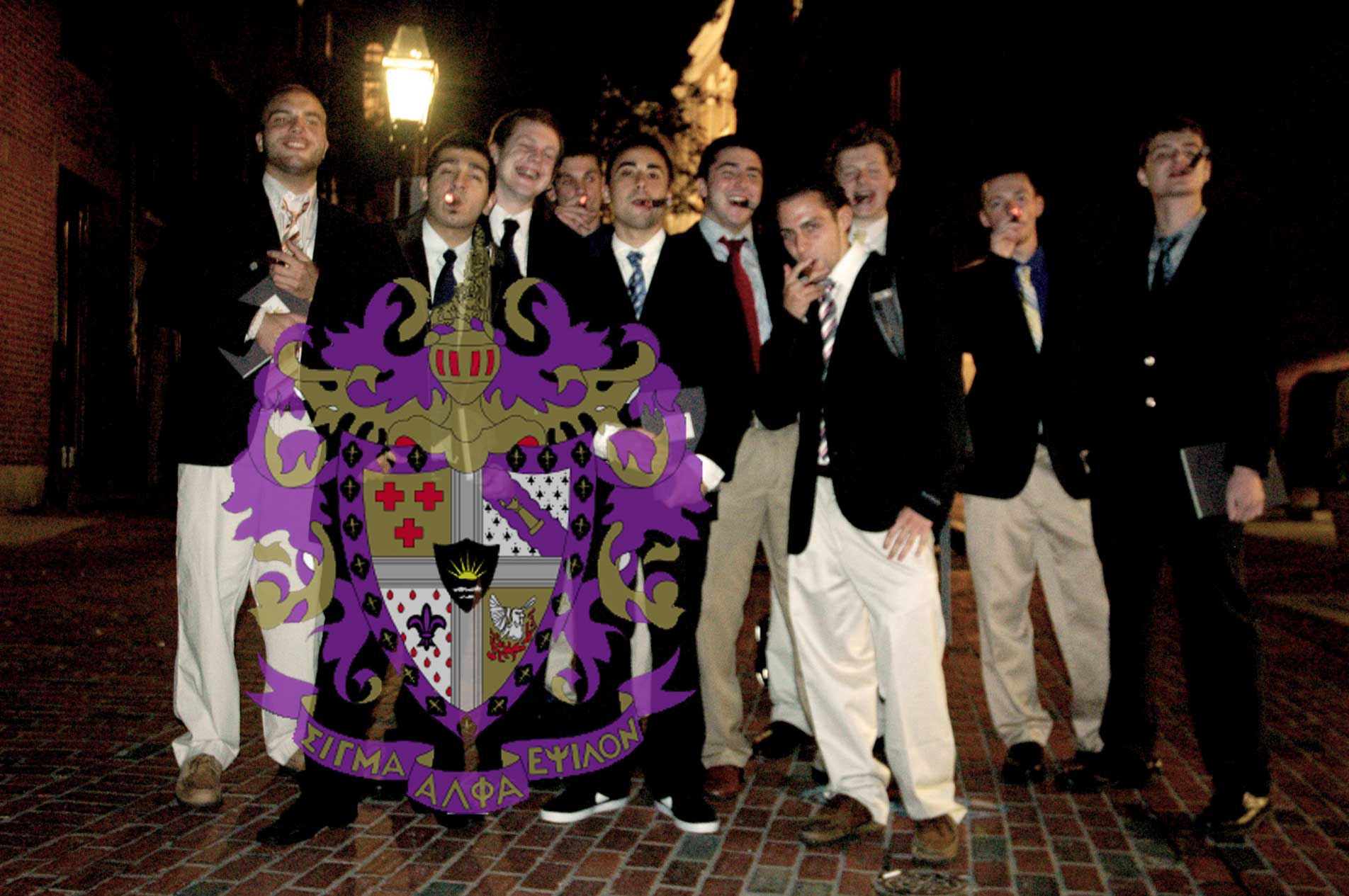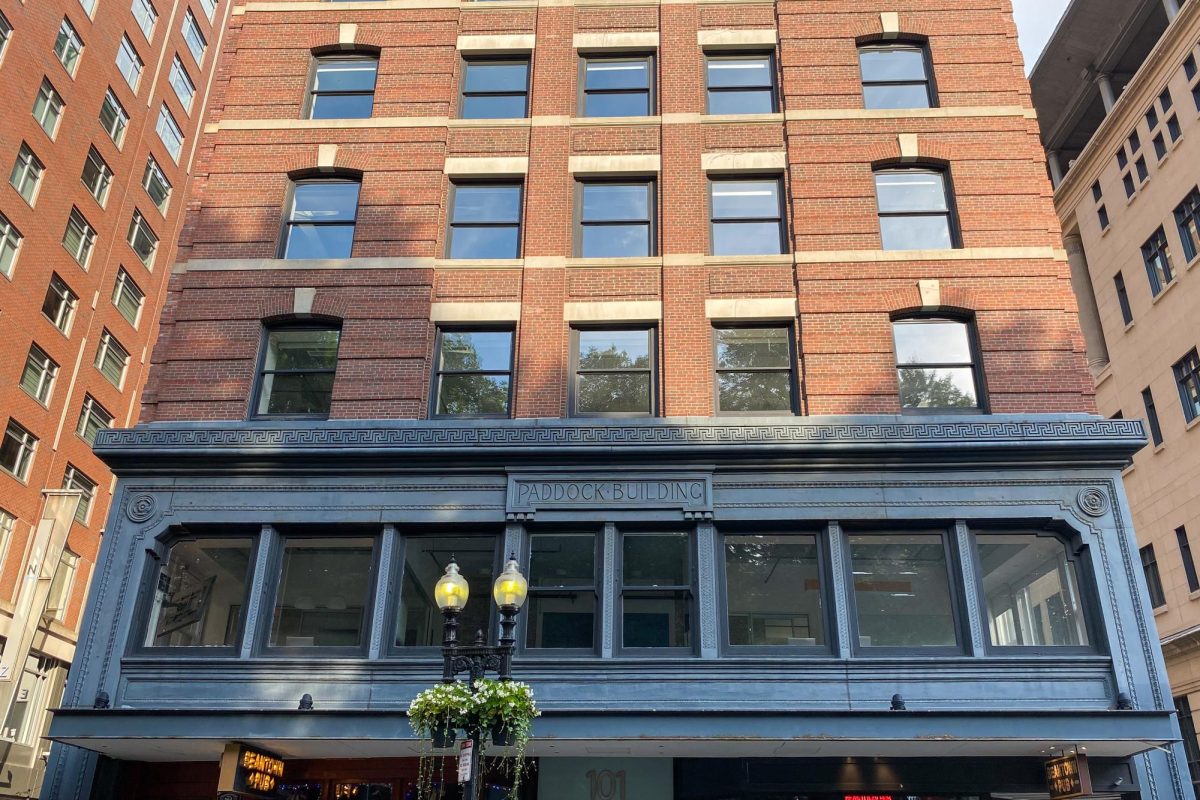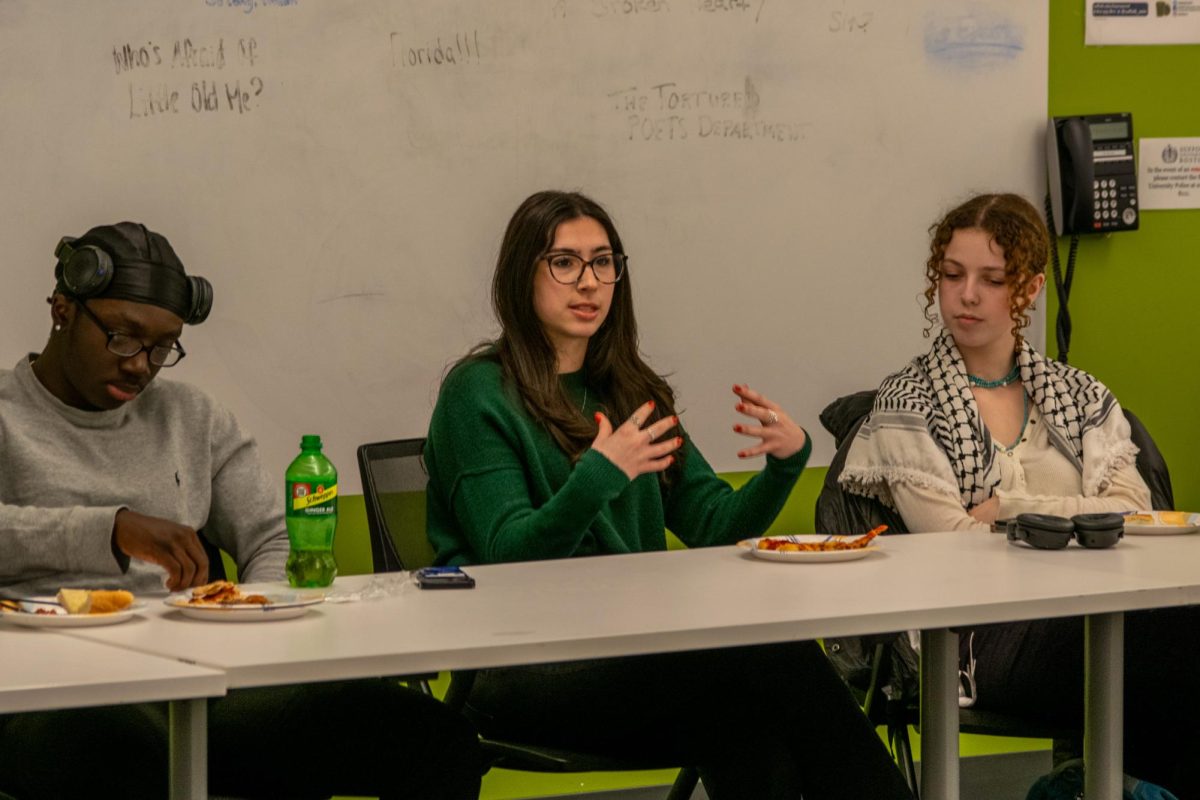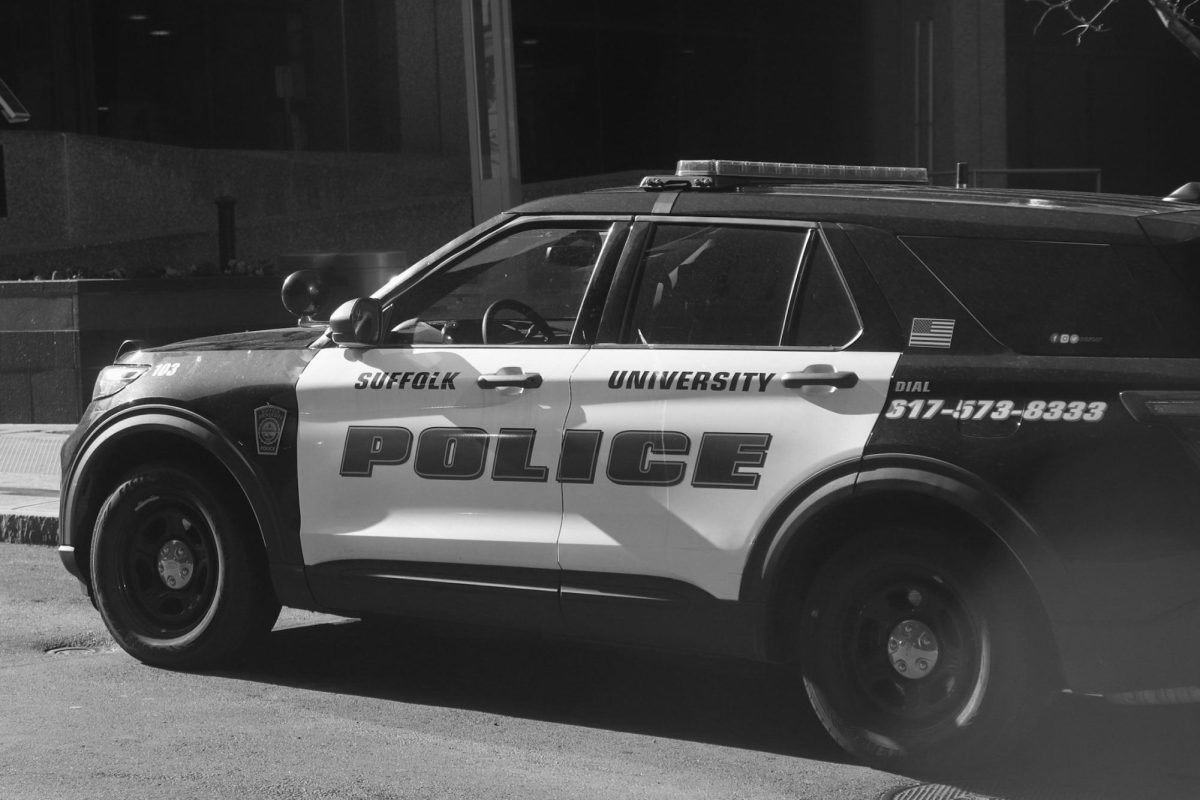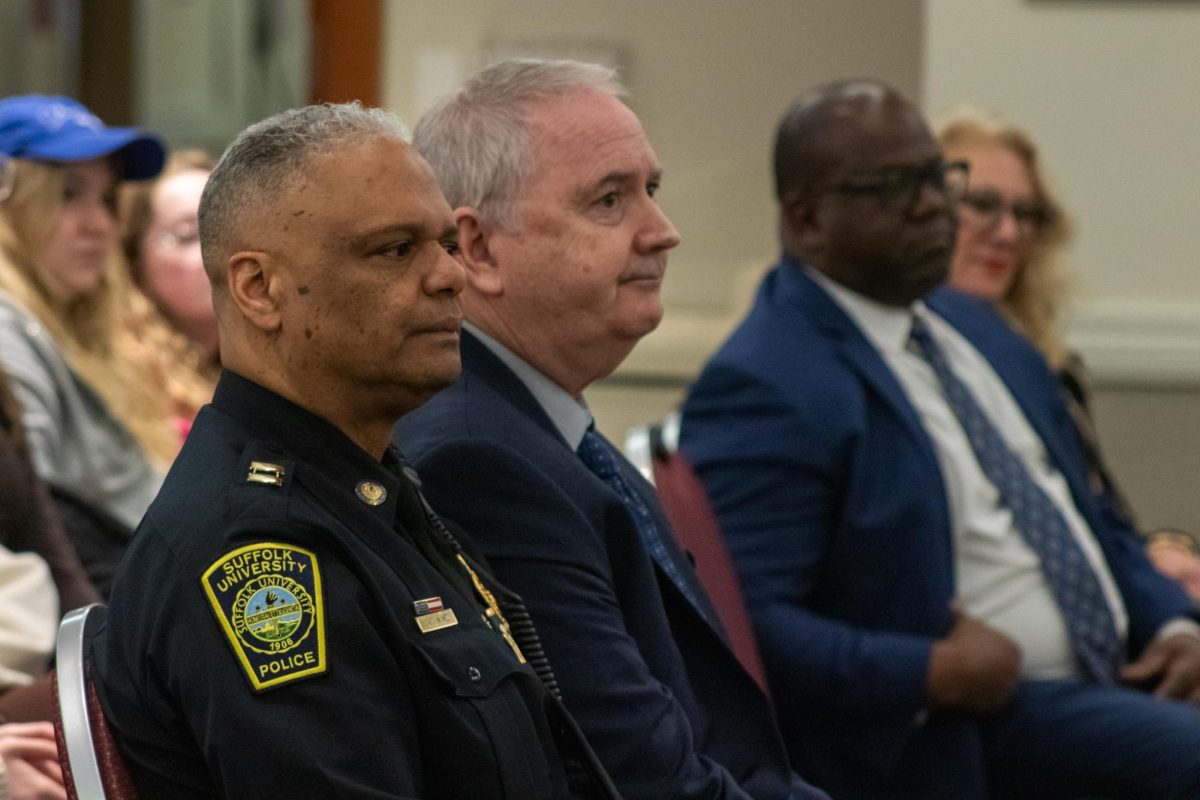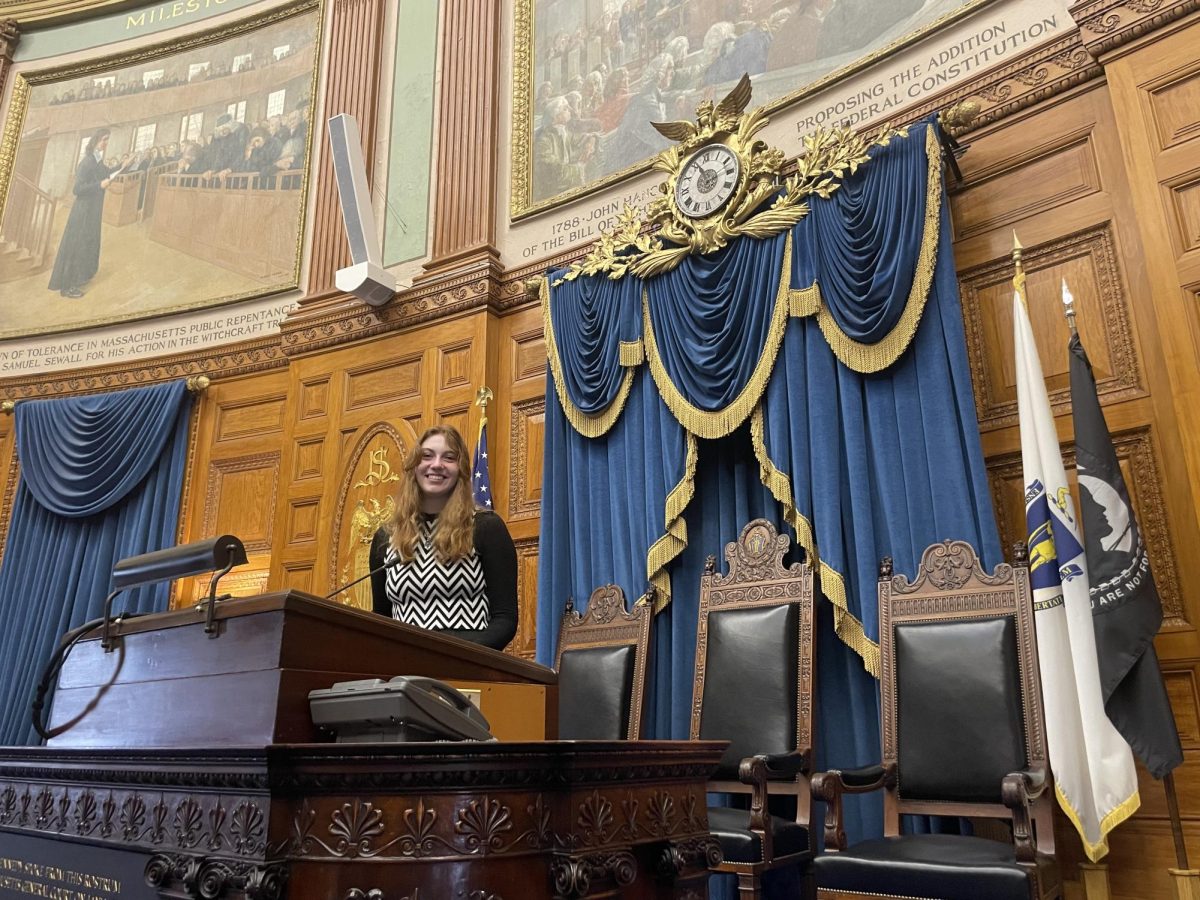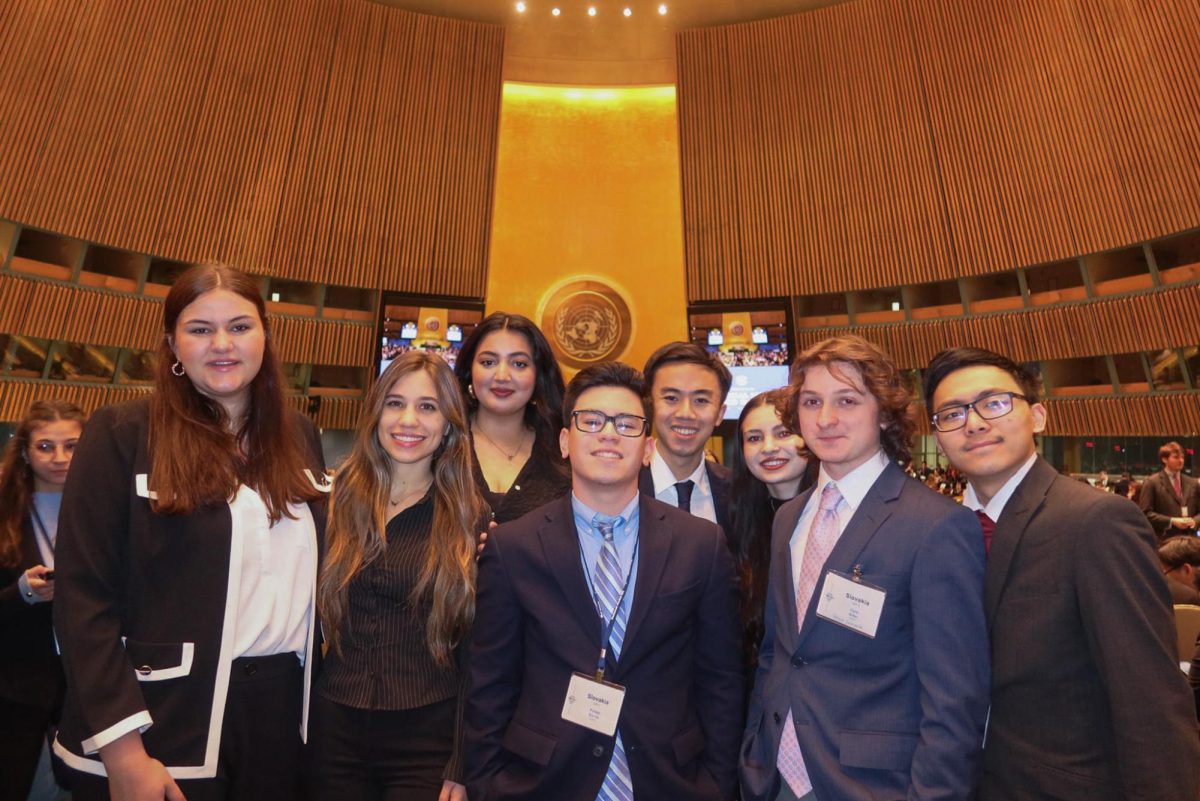Article by: Ethan Long
For the past year, sophomore Paul Thompson has worked to once again bring a fraternity to Suffolk University after years without one on campus. His main intention was to help students socialize and meet people at a school that doesn’t have a traditional campus.
“We thought that Suffolk’s campus was hard for kids to get to know each other. We thought a fraternity would help that, so that’s what got it rolling,” said Thompson. With the support of roommates and friends, Thompsoncontacted David DeAngelis, director of the Office of Student Leadership and Involvement at Suffolk University.
“This didn’t happen overnight. I worked for an entire year with an interest group,” said DeAngelis, who met regularly with a few interested students like Thompson, who then found friends and other students who wanted to help form the fraternity. As soon as more men joined the cause, they started researching different fraternity organizations that they thought about becoming a part of.
“We had a list of five fraternities we were looking into. We wanted a group that would work well with us,” Thompson said. They eventually settled on Sigma Alpha Epsilon. “Epsilon actually came to us with a presentation and was really involved since the beginning.” Sigma Alpha Epsilon, at present, has more members than any other fraternity in the country. It was founded during the 19th century and had about 15 chapters formed when the Civil War broke out. Since then, the fraternity has grown to about 300 chapters across the country. Notable members of the fraternity include author William Faulkner and Terry Gilliam of Monty Python.
The Suffolk group isn’t a fully recognized chapter, but a “colony”. According to Thompson, the period of colony is basically a probation period where requirements are set by the organization that must be met before becoming officially recognized by Sigma Alpha Epsilon. Real growth can start once they become recognized. “We can start recruiting kids next semester and hopefully soon we can start doing things on campus like different events that we’ve been thinking of,” said Thompson.
“I think fraternities and sororities are wonderful leadership opportunities on campus. Fraternities focus on the four cornerstones of fellowship, scholarship, civic duty, and leadership. It’s an opportunity for students to be a part of an organization with history. When you’re in a fraternity, you share a bond, a ritual. One of the benefits I see is that it not only enriches their life as undergrads, but it follows them for the rest of their lives,” said DeAngelis.
Suffolk has had a few fraternities over the years, but hasn’t had a stable one in recent years. One Suffolk frat, Tua Kappa Epsilon, lost office space in 2001 due to sanctions placed on them after they sat in front of 150 Tremont Street rating the girls walking around. Another fraternity, Omicron-Delta, the Suffolk chapter of Kappa Sigma, became an officially recognized as a chapter in April 2005, but shortly after became inactive.
Greek life on campus presently includes the Theta Phi Alpha sorority, which was officially recognized in 2006. Another group of students have recently formed a Suffolk Colony for the Zeta Tau Alpha sorority.


